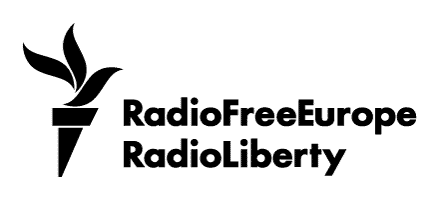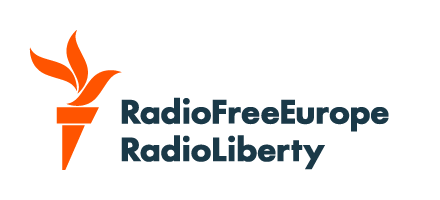The pressure on Internews is one part of a concerted campaign to discredit Western media following the 12-13 May Andijon uprising in which hundreds of civilians are believed to have been killed after Uzbek troops opened fire on demonstrators. Soon after the Andijon events, Uzbekistan's authorities began a crackdown on the country's tiny cadre of independent journalists. Also targeted were Russian and Western journalists. The OSCE issued a report last month detailing several examples of harassment by Uzbek authorities during and after the Andijon unrest.
Despite the international attention accompanying the report, the harassment has continued. On 6 July, two unknown assailants beat Rajabboy Raupov, a freelance journalist who works for a number of media outlets including Radio Free Europe, with an iron bar, leaving him in a critical condition. Five days earlier, another correspondent for RFE/RL's Tashkent bureau, Lobar Qaynarova, was beaten unconscious. Qaynarova, who was three months pregnant at the time, had just been interviewing human rights campaigners and opposition activists. Her interviewing materials were confiscated. On 26 June, Ghafur Yuldoshev, another RFE/RL correspondent was picked up by police and interrogated for four hours. His materials were also confiscated.
The campaign against journalists has not been limited to physical assaults. Damning words, insinuations, and accusations about lack of patriotism can be found in any number of recent articles. A new website, c-asia.org, which has turned out to be one of the few sites that is never blocked by local ISPs, published an article on 30 May attacking Gulasal Kamalova, another RFE/RL correspondent for Radio Svoboda. According to the article, her reports "have for a long time created the impression that her interests were not of a patriotic character." Her reports, according to the site, are characterized by "lies, slander, unproved facts, [and] far-fetched theories."
Freeuz.org, the website of the Tashkent-based Committee for Free Speech and Expression, noted on 16 June that the republican newspaper "Pravda vostoka" has been publishing anonymous material against those persons calling for an investigation of the Andijon events. On 15 June, the newspaper published a letter from a pensioner, complaining that foreign mass media started "a programmed massive attack on Uzbekistan and its leadership accusing it of all deadly sins." According to the website, the previously unknown pensioner has been remarkably prolific lately, contributing any number of missives to Uzbekistan's newspapers.
Russian Consultants
Writing on freeuz.com on 16 June, analyst Sergei Yezhkov argued that the assault on Western media had become both more "aggressive and professional" and suggested that perhaps Uzbek authorities are getting help from their Russian neighbors. He noted the arrival of a delegation of Russian spin doctors and journalists, including Politika head Vyacheslav Nikonov, former "Nezavisimaya gazeta" editor Vitalii Tretyakov, among others, to Tashkent in mid-June, and their subsequent trumpeting of President Karimov's version of events in Andijon upon their return to Moscow. Writing in "Trud" on 8 July, Nikonov argued that Andijon was an "armed rebellion" led by "300 well-prepared, indoctrinated, and partly armed youths." According to Nikonov, the official casualty figure of less than 200 deaths better reflects what happened than the opposition figure of more than 700 deaths.
"Why is it impossible to suggest that Mr. Nikonov, Tretyakov, and pals flew to Tashkent in order to agree upon a joint policy in the information sphere to support Islam Karimov with the recruitment and deployment of smart journalists and their pens?" Yezhkov writes. "It is not as impossible as it may seem at first glance. Uzbekistan, judging by the evidence, has always paid highly for positive PR, created beyond its borders. And today the creation of a positive image of the Uzbek leader is in Russia’s interest."
Writing in "Vremya novostei" on 29 June, Arkadii Dubnov sounded a similar theme. "The U.S. and EU are insisting on an independent investigation of Andijon, which Tashkent with the support of Moscow is categorically refusing. As Russian political analyst Vyacheslav Nikonov expressed recently, the West is proceeding with a "presumption of guilt" with regard to the Uzbek president.... Not surprisingly, official Tashkent is grateful for Moscow's support. According to Dubnov, a "well-informed" expert on Russian-Uzbek relations speaking on the grounds on anonymity, told the daily that "Tashkent will have to pay for such support."
Whether or not Russia is playing a role in the Uzbek authorities' handling of the domestic and international fallout from Andijon, the United States, for its part, appears intent on continuing to try to influence Tashkent policy. This week, U.S. Congressman Christopher Smith (Republican) announced that he has introduced legislation that would halt both military and humanitarian aid to Central Asian governments that fail to democratize or respect human rights.
So far, Uzbekistan has not appeared to react to Congressman Smith's effort. But two weeks ago, speaking from Moscow, President Islam Karimov signaled that the campaign against the Uzbek media has support at the highest level. He accused Western journalists of arriving in Andijon prior to the unrest in order to "occupy convenient positions for reporting," RIA-Novosti quoted him as saying on 28 June. "This was a professional, thoroughly prepared operation," Karimov concluded.
Also see:
"Rights Group Claims Russians Arrested, Tortured Uzbeks"
Despite the international attention accompanying the report, the harassment has continued. On 6 July, two unknown assailants beat Rajabboy Raupov, a freelance journalist who works for a number of media outlets including Radio Free Europe, with an iron bar, leaving him in a critical condition. Five days earlier, another correspondent for RFE/RL's Tashkent bureau, Lobar Qaynarova, was beaten unconscious. Qaynarova, who was three months pregnant at the time, had just been interviewing human rights campaigners and opposition activists. Her interviewing materials were confiscated. On 26 June, Ghafur Yuldoshev, another RFE/RL correspondent was picked up by police and interrogated for four hours. His materials were also confiscated.
The campaign against journalists has not been limited to physical assaults. Damning words, insinuations, and accusations about lack of patriotism can be found in any number of recent articles. A new website, c-asia.org, which has turned out to be one of the few sites that is never blocked by local ISPs, published an article on 30 May attacking Gulasal Kamalova, another RFE/RL correspondent for Radio Svoboda. According to the article, her reports "have for a long time created the impression that her interests were not of a patriotic character." Her reports, according to the site, are characterized by "lies, slander, unproved facts, [and] far-fetched theories."
Freeuz.org, the website of the Tashkent-based Committee for Free Speech and Expression, noted on 16 June that the republican newspaper "Pravda vostoka" has been publishing anonymous material against those persons calling for an investigation of the Andijon events. On 15 June, the newspaper published a letter from a pensioner, complaining that foreign mass media started "a programmed massive attack on Uzbekistan and its leadership accusing it of all deadly sins." According to the website, the previously unknown pensioner has been remarkably prolific lately, contributing any number of missives to Uzbekistan's newspapers.
Russian Consultants
Writing on freeuz.com on 16 June, analyst Sergei Yezhkov argued that the assault on Western media had become both more "aggressive and professional" and suggested that perhaps Uzbek authorities are getting help from their Russian neighbors. He noted the arrival of a delegation of Russian spin doctors and journalists, including Politika head Vyacheslav Nikonov, former "Nezavisimaya gazeta" editor Vitalii Tretyakov, among others, to Tashkent in mid-June, and their subsequent trumpeting of President Karimov's version of events in Andijon upon their return to Moscow. Writing in "Trud" on 8 July, Nikonov argued that Andijon was an "armed rebellion" led by "300 well-prepared, indoctrinated, and partly armed youths." According to Nikonov, the official casualty figure of less than 200 deaths better reflects what happened than the opposition figure of more than 700 deaths.
"Why is it impossible to suggest that Mr. Nikonov, Tretyakov, and pals flew to Tashkent in order to agree upon a joint policy in the information sphere to support Islam Karimov with the recruitment and deployment of smart journalists and their pens?" Yezhkov writes. "It is not as impossible as it may seem at first glance. Uzbekistan, judging by the evidence, has always paid highly for positive PR, created beyond its borders. And today the creation of a positive image of the Uzbek leader is in Russia’s interest."
Writing in "Vremya novostei" on 29 June, Arkadii Dubnov sounded a similar theme. "The U.S. and EU are insisting on an independent investigation of Andijon, which Tashkent with the support of Moscow is categorically refusing. As Russian political analyst Vyacheslav Nikonov expressed recently, the West is proceeding with a "presumption of guilt" with regard to the Uzbek president.... Not surprisingly, official Tashkent is grateful for Moscow's support. According to Dubnov, a "well-informed" expert on Russian-Uzbek relations speaking on the grounds on anonymity, told the daily that "Tashkent will have to pay for such support."
Whether or not Russia is playing a role in the Uzbek authorities' handling of the domestic and international fallout from Andijon, the United States, for its part, appears intent on continuing to try to influence Tashkent policy. This week, U.S. Congressman Christopher Smith (Republican) announced that he has introduced legislation that would halt both military and humanitarian aid to Central Asian governments that fail to democratize or respect human rights.
So far, Uzbekistan has not appeared to react to Congressman Smith's effort. But two weeks ago, speaking from Moscow, President Islam Karimov signaled that the campaign against the Uzbek media has support at the highest level. He accused Western journalists of arriving in Andijon prior to the unrest in order to "occupy convenient positions for reporting," RIA-Novosti quoted him as saying on 28 June. "This was a professional, thoroughly prepared operation," Karimov concluded.
Also see:
"Rights Group Claims Russians Arrested, Tortured Uzbeks"




